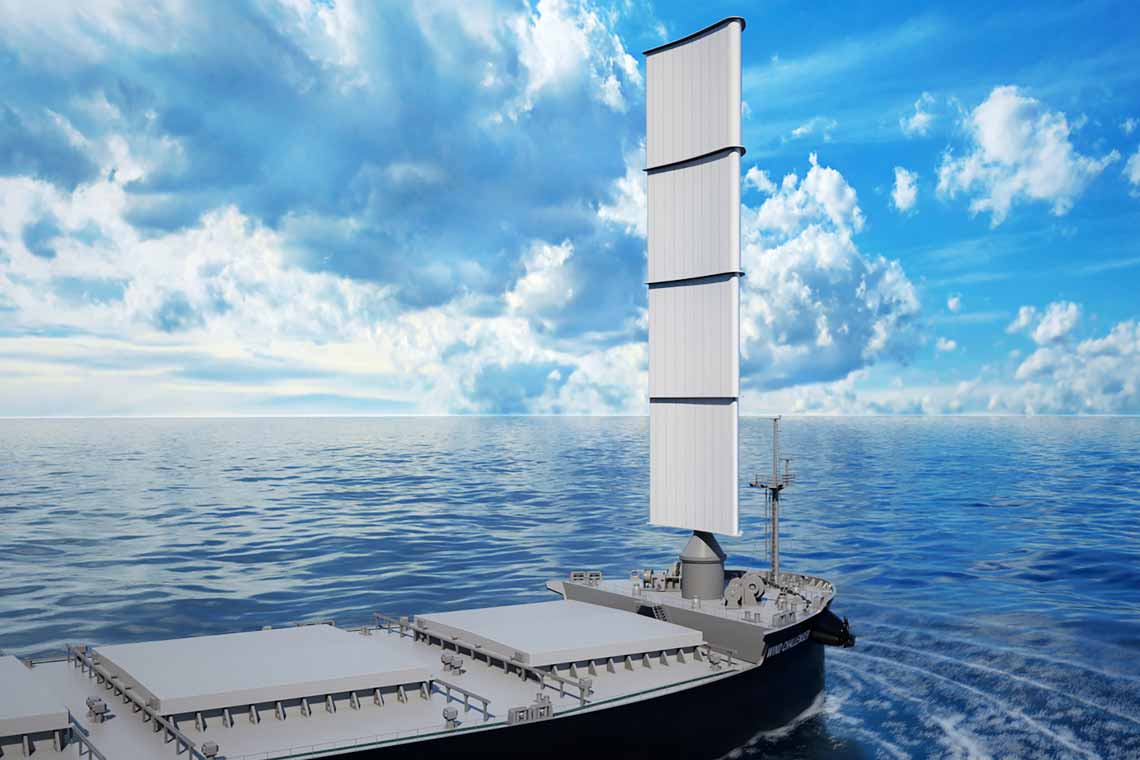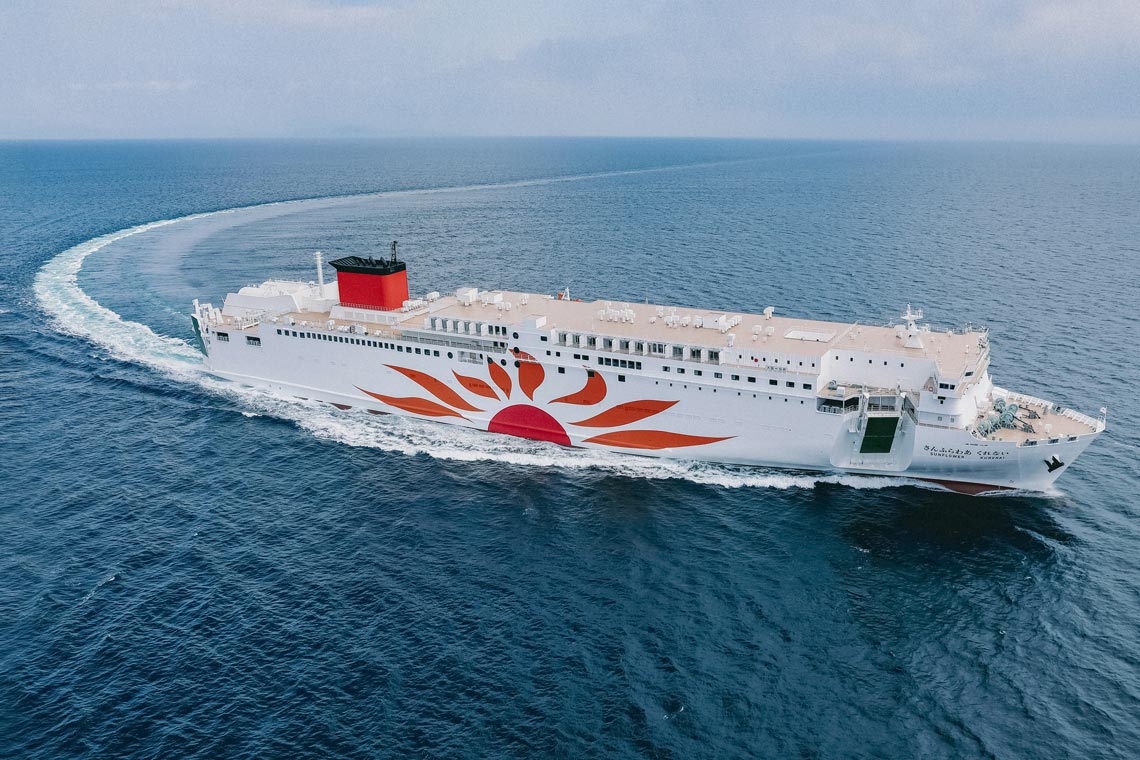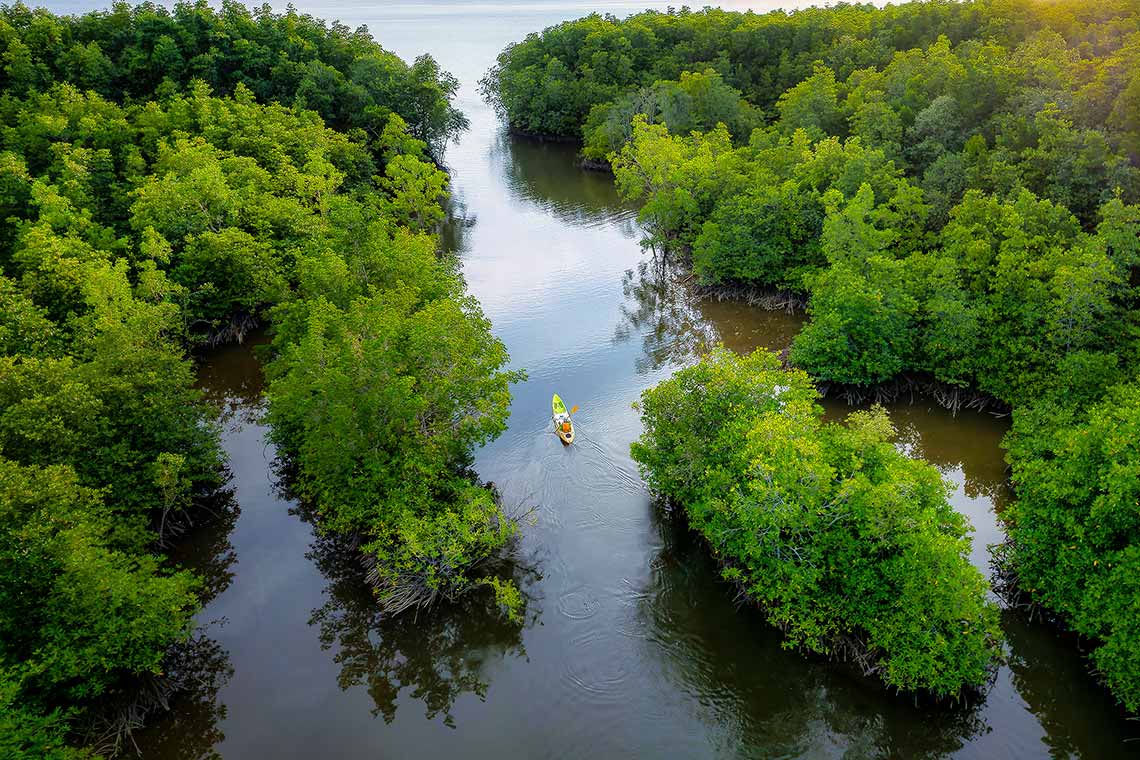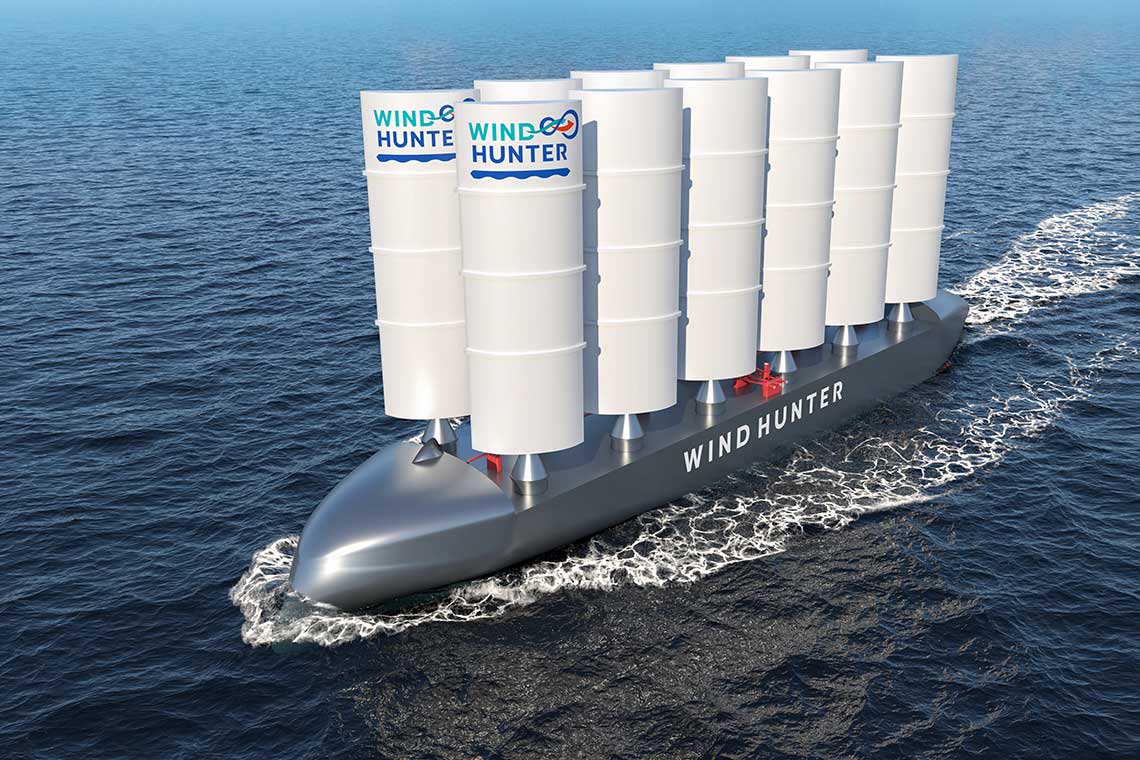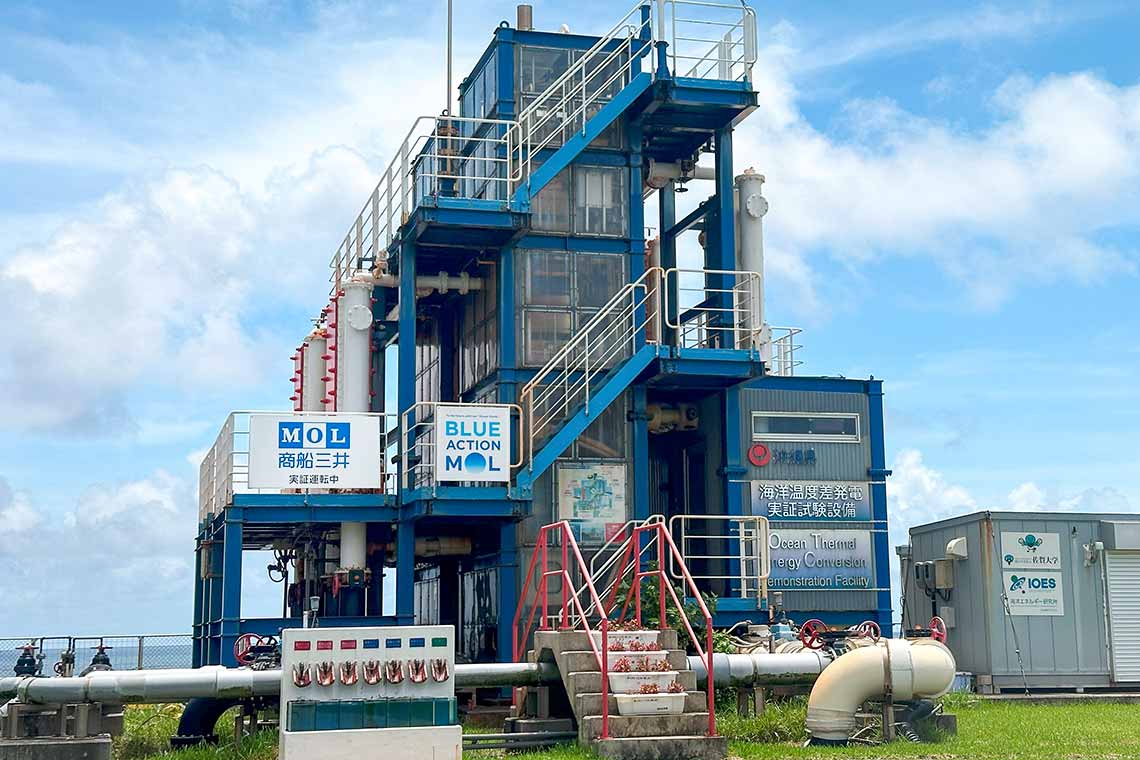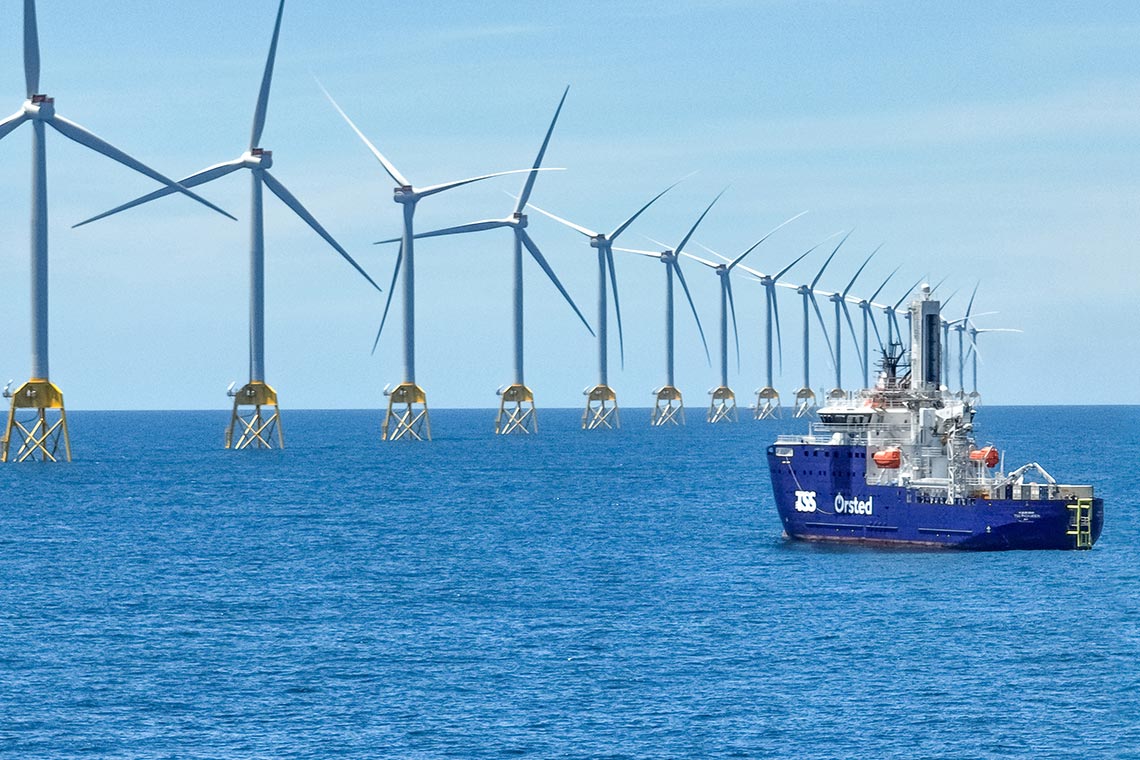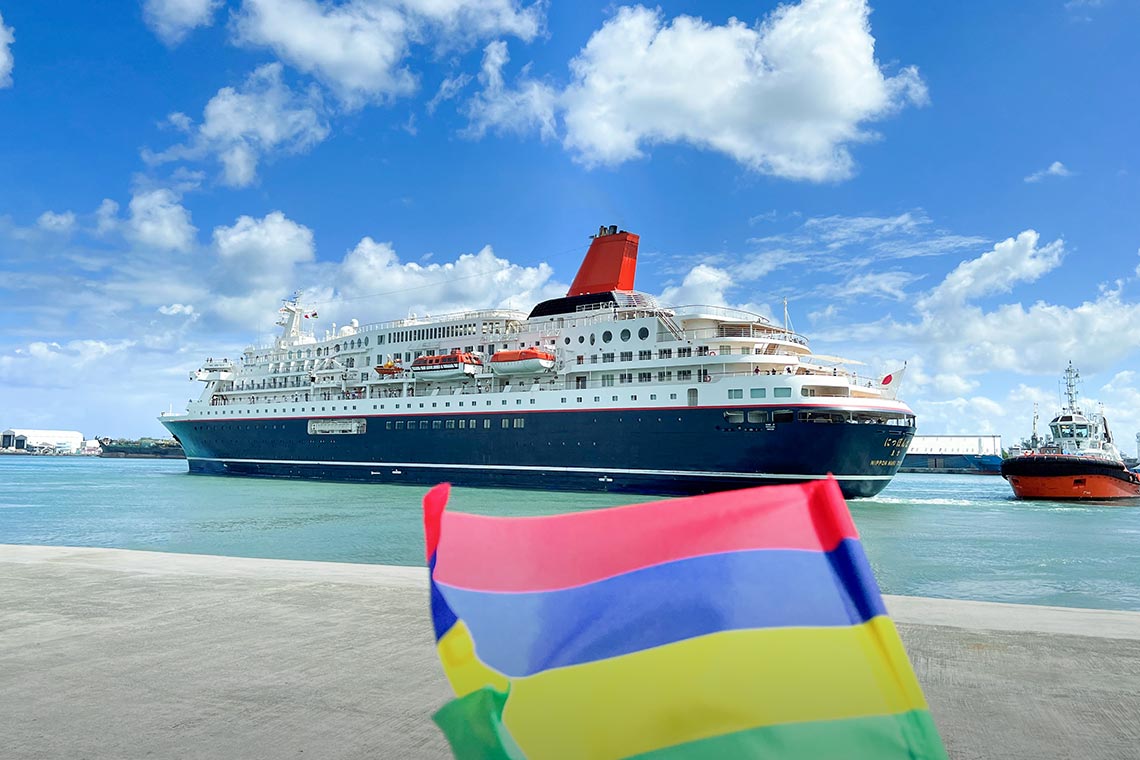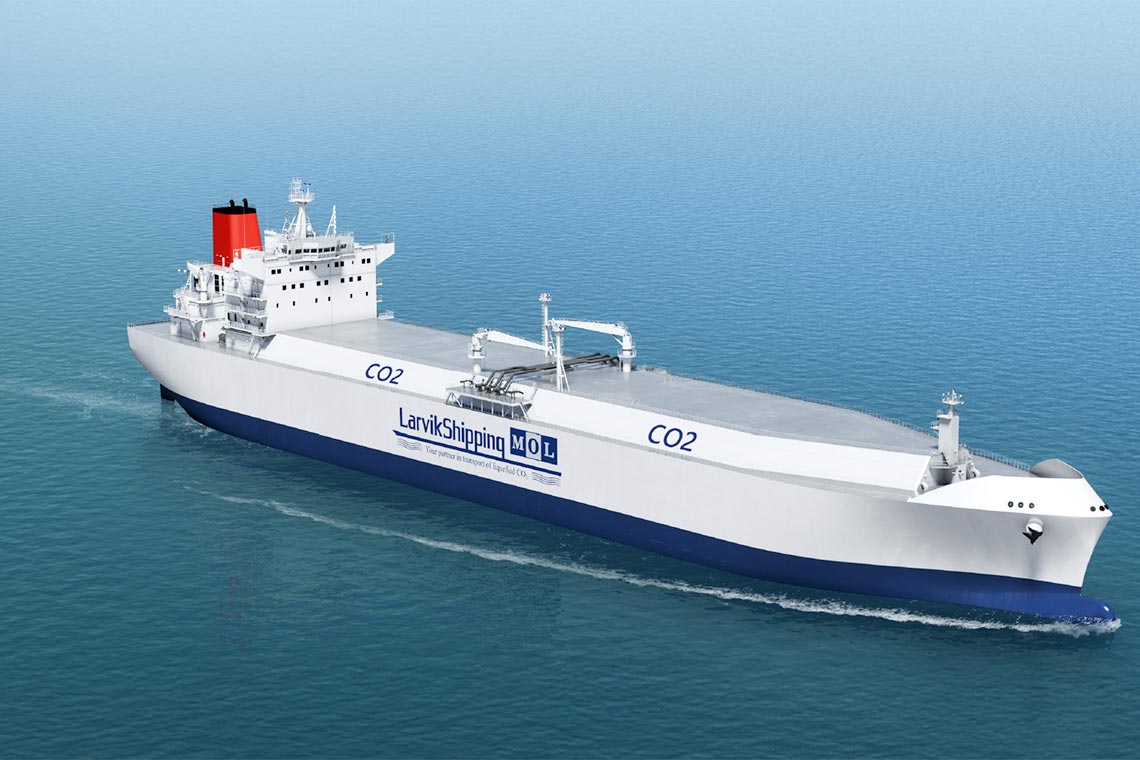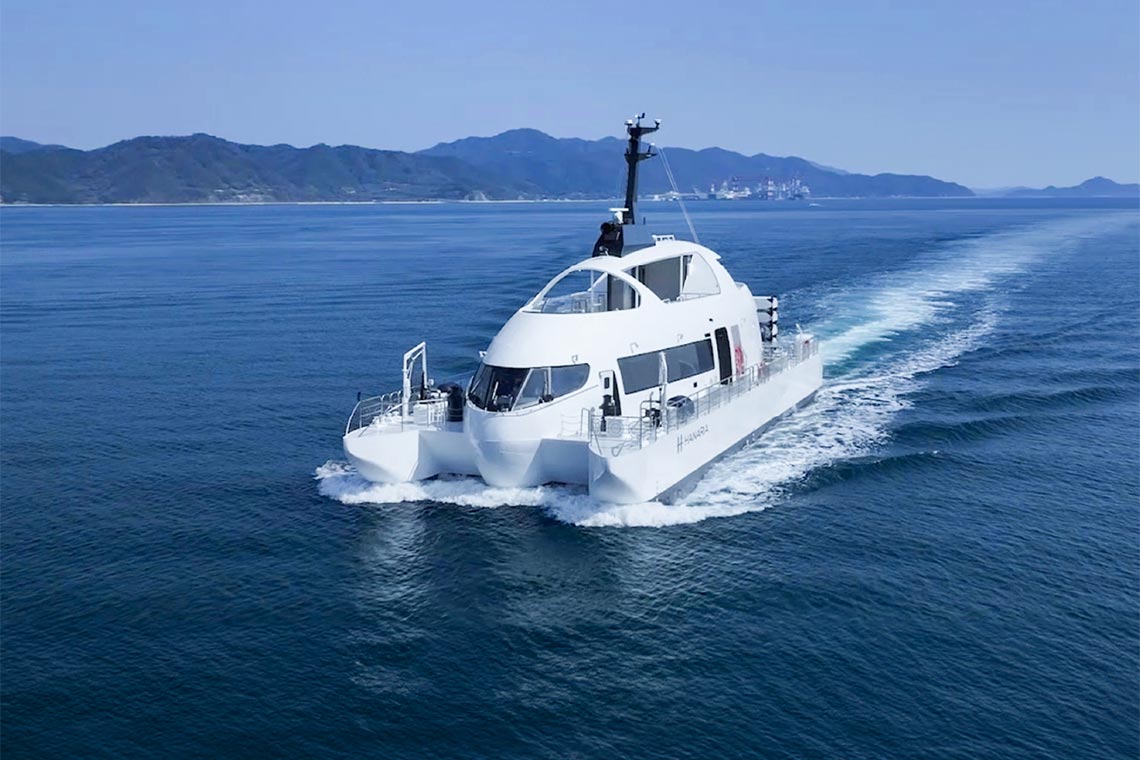
Generation Project
- STATEMENT
- To the future,
with our
'Ocean Planet.'
BLUE ACTION 005
Ocean Thermal Energy
Generation Project
A new economic model
from the ocean.
Feb 01, 2023
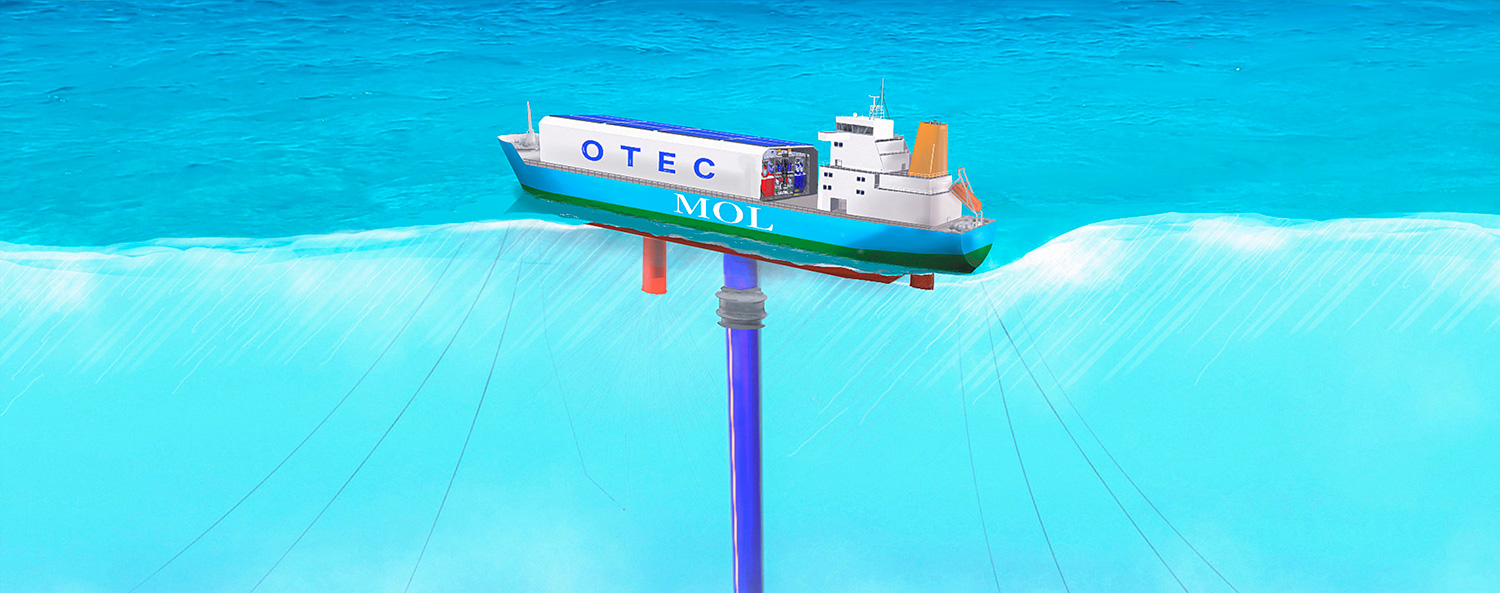
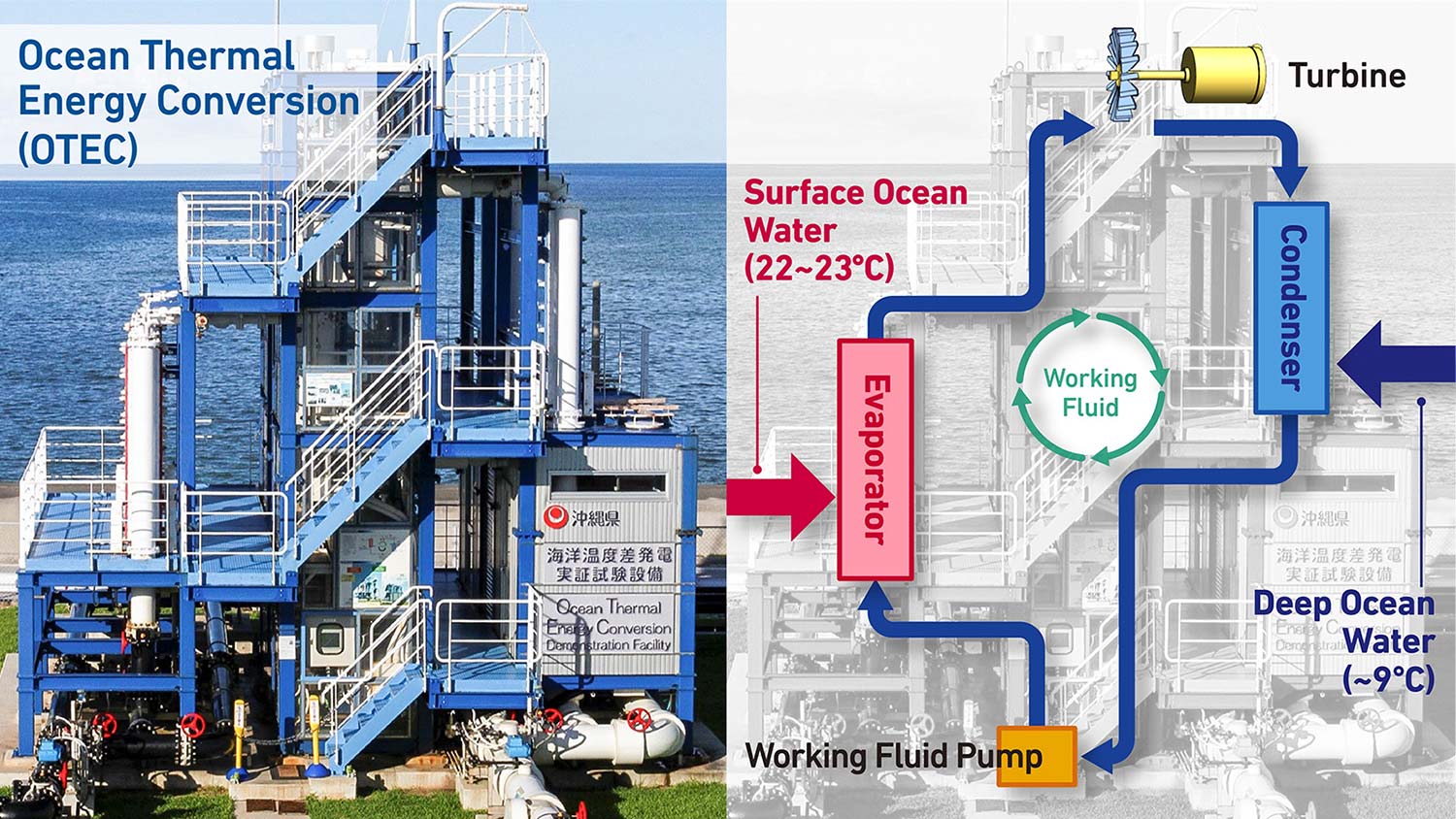
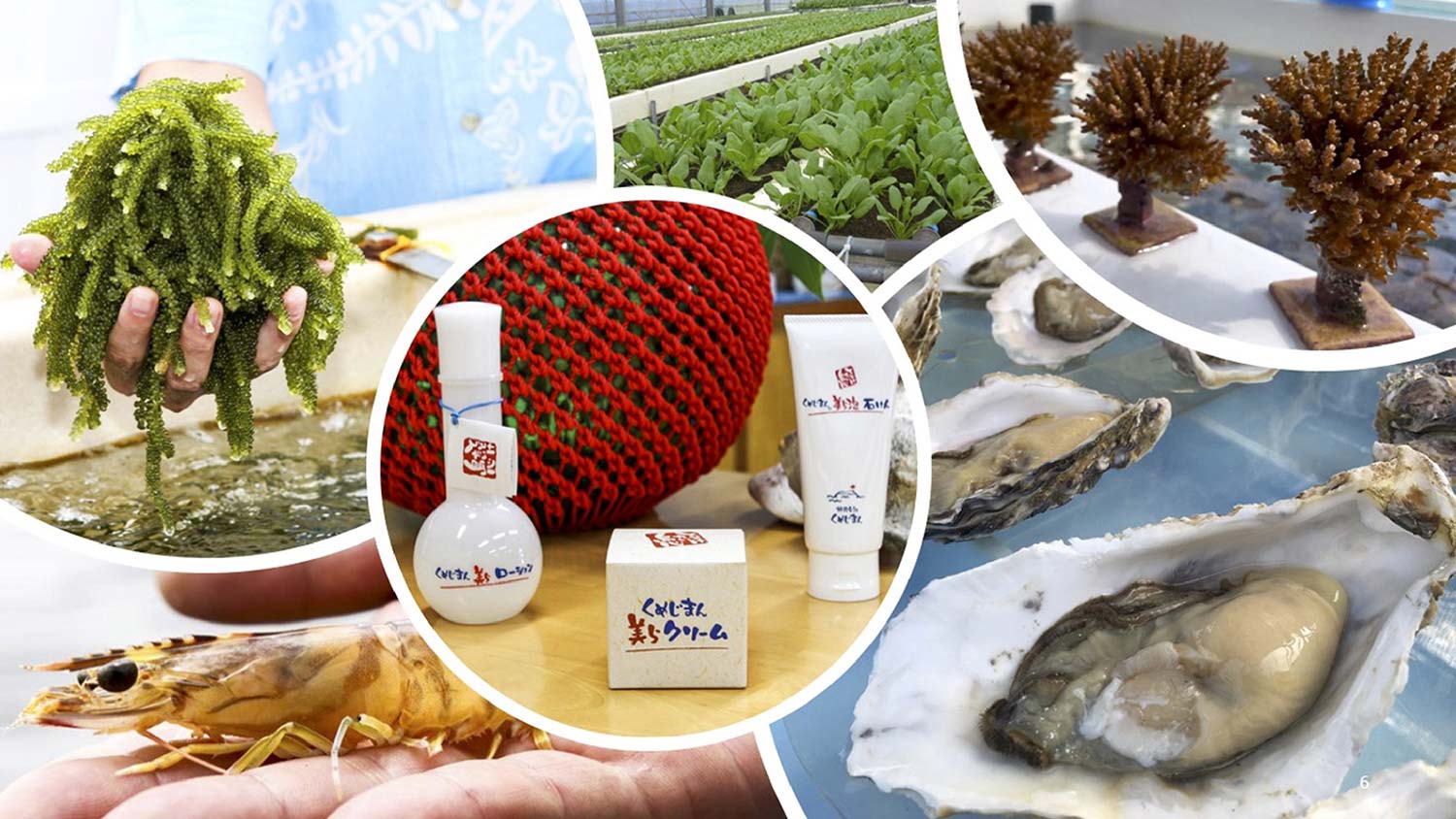
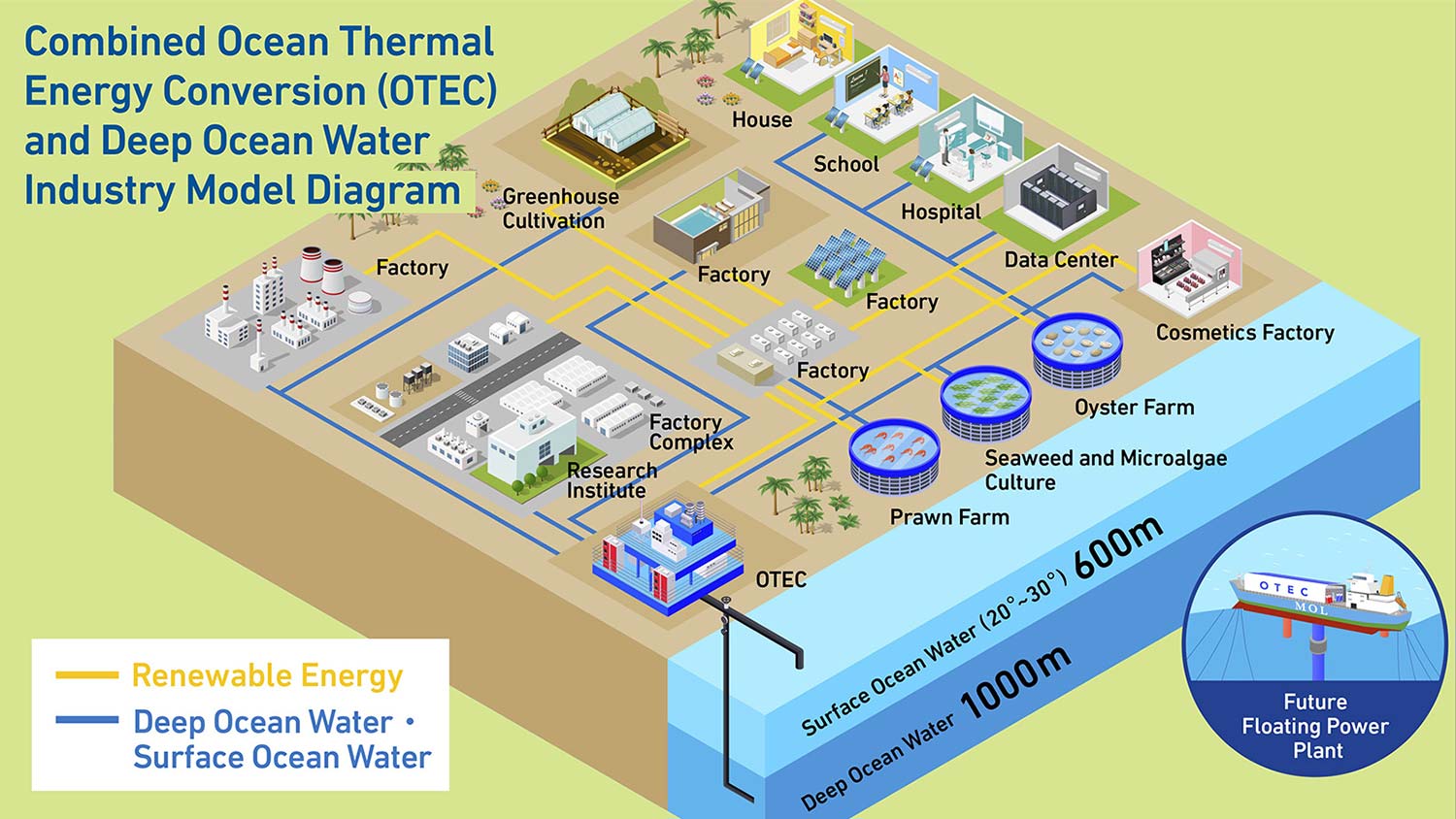
The ocean holds endless potential as a source of energy. Wave power, ocean currents, and tidal currents are among the known forms of marine renewable energy, but Mitsui O.S.K. Lines is focusing on Ocean Thermal Energy Conversion (OTEC), a technology where Japan is a leader.
Temperatures differ significantly between the ocean's upper and lower layers. OTEC generates electricity by using that resource, which can exceed 20ºC in tropical and subtropical zones. First, it uses the heat of warm, surface ocean water to evaporate a refrigerant with low boiling point to spin a turbine. It then reuses the resulting vapor by cooling it with deep ocean water. OTEC ensures steady power output because the ocean's temperature is not quickly affected by weather or time of day. In addition, OTEC takes up little space and is easy to operate, maintain, and inspect. Taking advantage of the massive amount of solar energy stored in the oceans on a large scale, we can make an enormous contribution to addressing the energy problems we face. That's why since April 2022, Mitsui O.S.K. Lines has been a partner in operating a 100-kW OTEC test facility on the island of Kumejima, Okinawa Prefecture. There are also plans to open a 1-MW power station by around 2026.
A further advantage of an OTEC is that we can reuse the deep ocean water. For example, cold water with a temperature of 5ºC to 7ºC could provide air-conditioning for a hotel or data center. The water is also rich in nutrients and pure, which means it could be used for farming fish or growing crops. The minerals and other nutrients in deep ocean water are attracting particular attention for potential uses in areas such as microalgae farming, beauty, and health.
New industries and jobs are already being created in Kumejima with economic impact amounting to approximately 2.5 billion yen a year. The Kumejima Model combines OTEC with the use of deep ocean water, and we hope to adapt that model far and wide overseas in places like Mauritius, Malaysia, and Indonesia.
When we consider the future of the entire planet, thinking of the sea and land as one could provide a hint. The Mitsui O.S.K. Lines Group will contribute to a sustainable society with a new economic model that brings the gifts of the sea onto land.
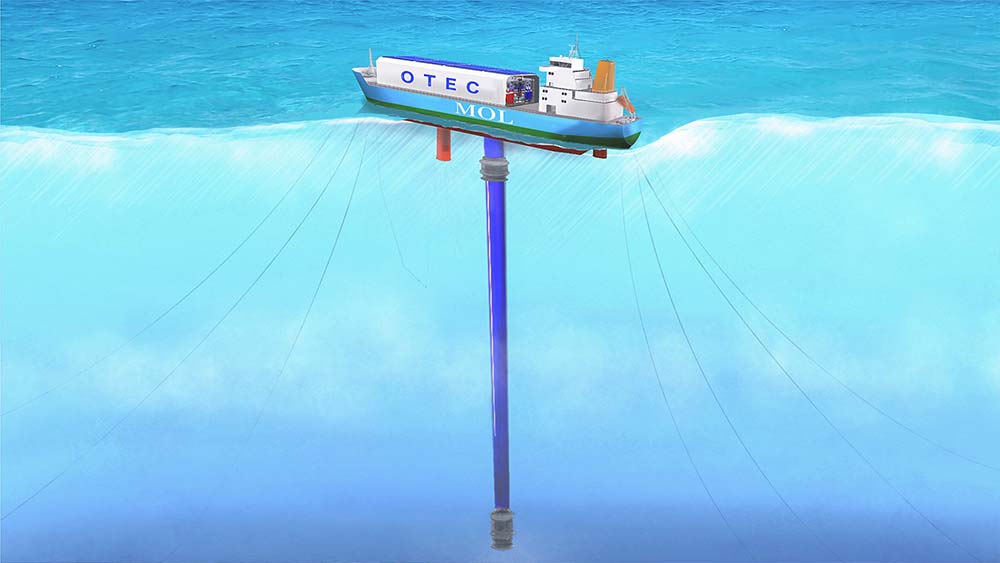
The ocean holds endless potential as a source of energy. Wave power, ocean currents, and tidal currents are among the known forms of marine renewable energy, but Mitsui O.S.K. Lines is focusing on Ocean Thermal Energy Conversion (OTEC), a technology where Japan is a leader.
Temperatures differ significantly between the ocean's upper and lower layers. OTEC generates electricity by using that resource, which can exceed 20ºC in tropical and subtropical zones. First, it uses the heat of warm, surface ocean water to evaporate a refrigerant with low boiling point to spin a turbine. It then reuses the resulting vapor by cooling it with deep ocean water. OTEC ensures steady power output because the ocean's temperature is not quickly affected by weather or time of day. In addition, OTEC takes up little space and is easy to operate, maintain, and inspect. Taking advantage of the massive amount of solar energy stored in the oceans on a large scale, we can make an enormous contribution to addressing the energy problems we face. That's why since April 2022, Mitsui O.S.K. Lines has been a partner in operating a 100-kW OTEC test facility on the island of Kumejima, Okinawa Prefecture. There are also plans to open a 1-MW power station by around 2026.

A further advantage of an OTEC is that we can reuse the deep ocean water. For example, cold water with a temperature of 5ºC to 7ºC could provide air-conditioning for a hotel or data center. The water is also rich in nutrients and pure, which means it could be used for farming fish or growing crops. The minerals and other nutrients in deep ocean water are attracting particular attention for potential uses in areas such as microalgae farming, beauty, and health.

New industries and jobs are already being created in Kumejima with economic impact amounting to approximately 2.5 billion yen a year. The Kumejima Model combines OTEC with the use of deep ocean water, and we hope to adapt that model far and wide overseas in places like Mauritius, Malaysia, and Indonesia.
When we consider the future of the entire planet, thinking of the sea and land as one could provide a hint. The Mitsui O.S.K. Lines Group will contribute to a sustainable society with a new economic model that brings the gifts of the sea onto land.


